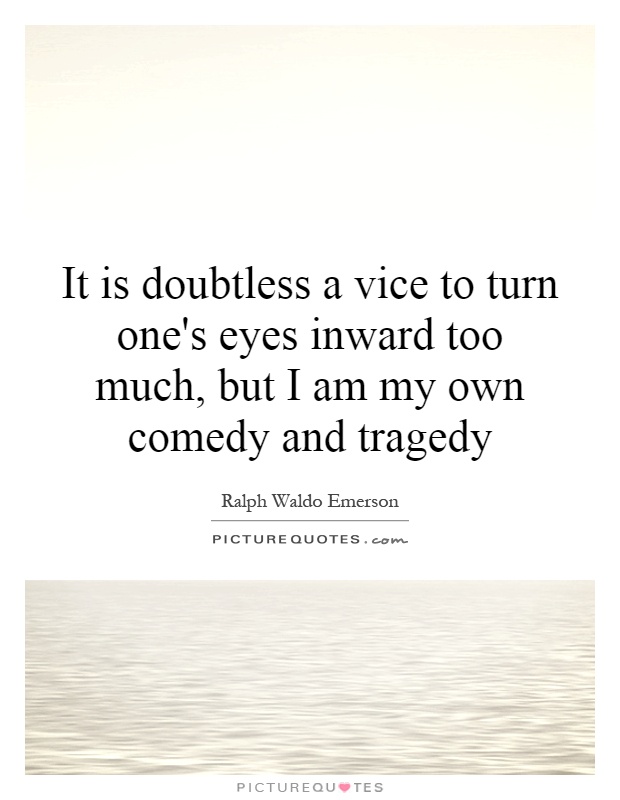It is doubtless a vice to turn one's eyes inward too much, but I am my own comedy and tragedy

It is doubtless a vice to turn one's eyes inward too much, but I am my own comedy and tragedy
Ralph Waldo Emerson, a prominent figure in the transcendentalist movement of the 19th century, was known for his philosophical musings on individualism, self-reliance, and the interconnectedness of all things. In his essay "Self-Reliance," Emerson explores the idea that one must trust in their own intuition and inner voice, rather than conforming to societal norms and expectations. This theme is echoed in the quote, "It is doubtless a vice to turn one's eyes inward too much, but I am my own comedy and tragedy."Emerson believed that self-examination and introspection were essential components of personal growth and self-discovery. However, he also recognized the dangers of becoming too self-absorbed or narcissistic. By turning one's eyes inward too much, one runs the risk of losing touch with reality and becoming disconnected from the world around them. This excessive self-focus can lead to feelings of isolation, alienation, and despair.
Despite the potential pitfalls of excessive introspection, Emerson acknowledges that each individual is a complex and multifaceted being, capable of embodying both comedy and tragedy. In other words, we are all capable of experiencing moments of joy, laughter, and lightness, as well as moments of sorrow, pain, and darkness. By embracing the full spectrum of human experience, we can come to a deeper understanding of ourselves and our place in the world.
Emerson's assertion that "I am my own comedy and tragedy" speaks to the inherent contradictions and complexities of the human condition. We are constantly navigating the dualities of life – happiness and sadness, success and failure, love and loss. By recognizing and accepting these contradictions within ourselves, we can cultivate a sense of wholeness and authenticity.












 Friendship Quotes
Friendship Quotes Love Quotes
Love Quotes Life Quotes
Life Quotes Funny Quotes
Funny Quotes Motivational Quotes
Motivational Quotes Inspirational Quotes
Inspirational Quotes